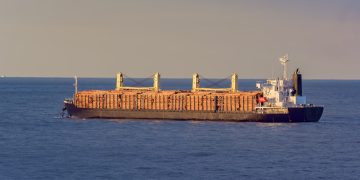The International Chamber of Shipping (ICS) welcomes further progress achieved on developing a base text for amendments to the MARPOL Convention, to help ensure delivery of the International Maritime Organization’s (IMO) goal for international shipping to deliver net-zero greenhouse gas (GHG) emissions by or close to 2050.
However, according to ICS, much more work still needs to be undertaken by governments before this ‘Net-Zero Framework’ is ready to be approved at next year’s critical MEPC meeting in April. A universal GHG contribution system is the best chance the shipping industry has to meet the IMO net zero GHG emissions target by or around 2050.
We are pleased that the concept of a universal GHG contribution by ships, per tonne of CO2e emitted, remains firmly on the table at IMO. There is strong support for this from a clear majority of IMO Member States, which also control most of the world’s shipping tonnage.
… said the Organization in a statement
There is also broad agreement, as advocated by the shipping industry, about the need to reduce the cost gap with conventional marine fuel oil to incentivise a rapidly accelerated uptake of zero/near-zero GHG fuels and technologies. The vital need for a reward element for first movers, and for setting up an IMO Fund to support a just and equitable transition in developing countries is clear, ICS supports.
Furthermore, ICS appreciates the good co-operation between the various proponents for a GHG contribution measure (the EU/Japan, Bahamas/Liberia/ICS, plus Caribbean and Pacific Island States) to streamline their suggested regulatory texts which have very much in common and share the same core objectives.
We remain committed to supporting these efforts and will continue to work with governments on all sides of the debate to find equitable regulatory solutions that can enjoy broad consensus support.
… ICS highlighted.
ICS is also pleased that MEPC has committed to consider and address all identified system anomalies within the review of the Carbon Intensity Indicator. The workload to achieve this will be substantial and will extend beyond January 2026.
During this review period, ICS urges all stakeholders to be cognisant of the limitations of the system when referring to the ratings or metrics. ICS remains committed to support this process and will work collaboratively to ensure a robust, fair and accurate system will emerge.

































































